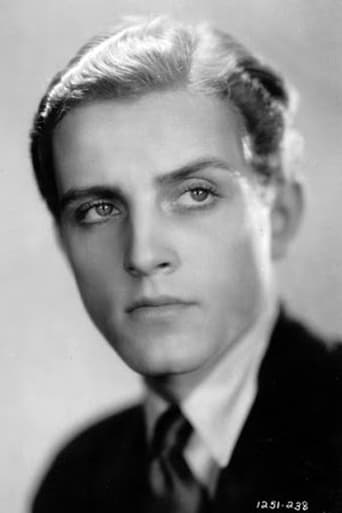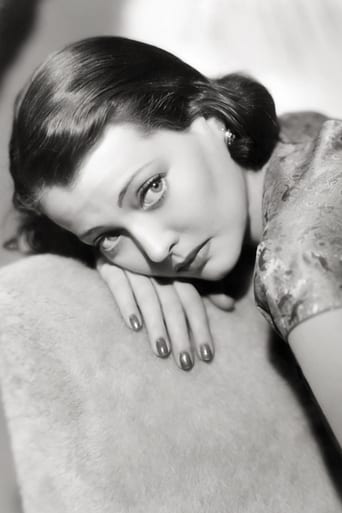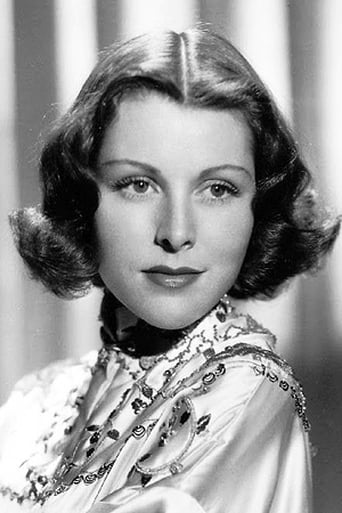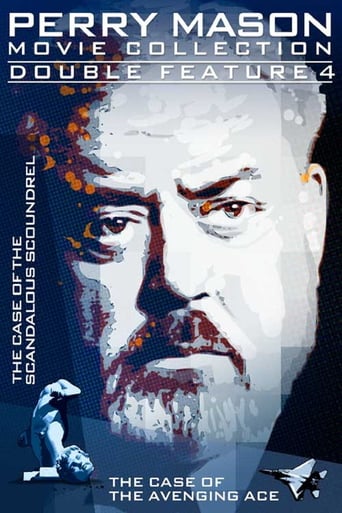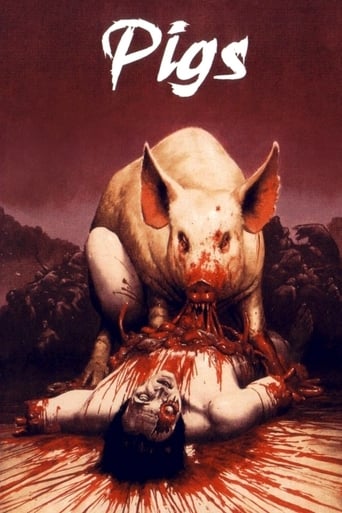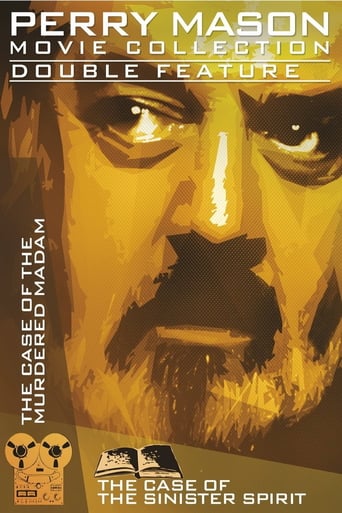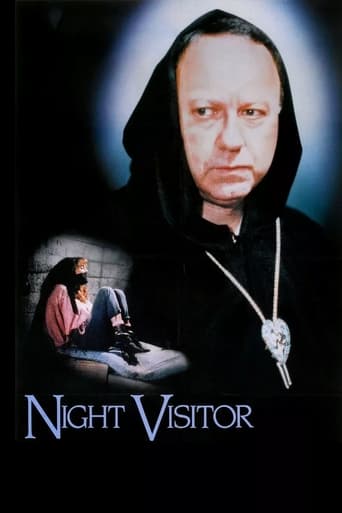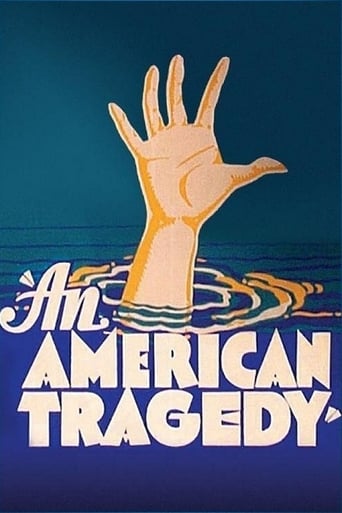
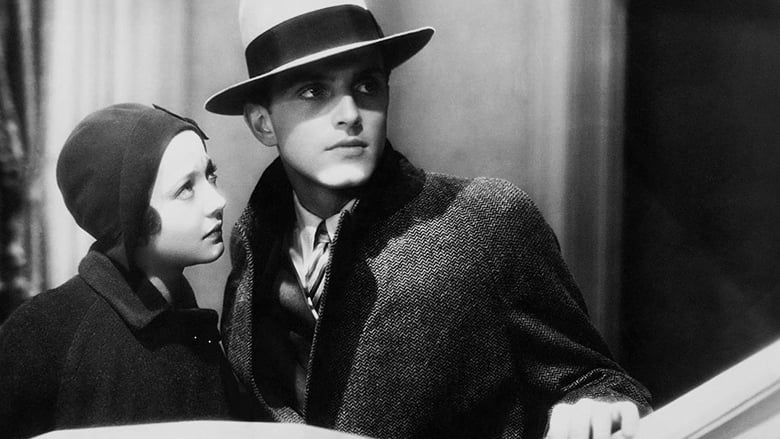
An American Tragedy (1931)
A social climber charms a debutante, seduces a factory worker and commits murder.
Watch Trailer
Cast


Similar titles
Reviews
I like movies that are aware of what they are selling... without [any] greater aspirations than to make people laugh and that's it.
It was OK. I don't see why everyone loves it so much. It wasn't very smart or deep or well-directed.
The movie's neither hopeful in contrived ways, nor hopeless in different contrived ways. Somehow it manages to be wonderful
Great example of an old-fashioned, pure-at-heart escapist event movie that doesn't pretend to be anything that it's not and has boat loads of fun being its own ludicrous self.
This first film adaptation of Theodore Dreiser's novel is an extremely troubled release ... first disowned by Dreiser, and then disowned by Josef von Sternberg when Dreiser successfully sued to have footage put back into the theatrical release. In a sense, it's a very faithful adaptation, following the plot of the book more closely than George Stevens's "A Place in the Sun". It still feels pretty truncated as the book's plot is jammed into an hour and a half. As a pre-code film, it's allowed to not skirt around the themes of abortion, murder and erotic obsession. It's one glaring fault is that Phillips Holmes seems completely unable to gain much audience sympathy and thus the movie's main character comes off as a completely amoral monster.
It's interesting to compare this precode era adaptation to the glossier seemingly bigger-budget production, 1951's "A Place in the Sun". People today will likely not remember the stars since so much of their work was done at 1930's Paramount and is never shown anymore. Practically all of the action is centered on working class girl Roberta (Sylvia Sidney) and Clyde Griffiths (Phillips Holmes), who wants what he wants when he wants it. Frances Dee as the rich girl Clyde falls for later in the film barely gets any lines at all as compared to Elizabeth Taylor in the corresponding part in the 1951 film. In fact the whole tale is spartanly told. Clyde's past is filled in more in this film, along with more about his mother and the fact that she realizes she failed Clyde by concentrating so much on her mission work and thus exposing Clyde to all of the darkness in life with none of the normal attention and happinesses that most children experience, thus making Clyde selfish and hungry for the good things in life. Clyde gets a break when he runs into the wealthy side of the family, gets a job in their factory, and ultimately works his way up to supervisor. But the family is more oblige toward him than noblesse, as they invite him up to visit them at their house - more for the sake of appearances than anything - and study him like a specimen rather than treat him like a guest. Through all of this, Clyde is stoic and unsurprised at their behavior. You get the feeling he'd do the same if he was in their place.Clyde selfishly but not maliciously pushes Roberta, one of the assembly line girls in his charge, into a relationship and ultimately into sharing a bed, and apparently this intimate relationship goes on some time until he meets a bigger better deal in the person of Sondra Finchley. Don't expect the sizzle and warmth of Montgomery Clift and Elizabeth Taylor here. Here Frances Dee and Philips Holme barely smolder, but that is probably intentional just to feed the impression that this guy truly can't love anybody. Here Roberta is an unlucky girl that you grow to like as you even meet her family at one point. In Place in the Sun Shelley Winter's rendition is that of a clawing nagging harpy, causing you to somewhat sympathize with Clyde. Here there can really be no sympathy for the guy - he really is a coward, always trying to get what he can out of life here and now, running from the consequences, lying to himself as well as everyone else.When the pregnant Roberta refuses to just disappear and insists on marriage, Clyde tears himself away from his summer vacation with his new socialite girlfriend long enough to plan a murder that will look like an accidental drowning. Does he want the good things in life enough to do even the foulest of deeds? Watch and find out. And you will find out, because what happens in the boat is clearly shown from beginning to end.One very interesting moment in this film not included in the remake: You see the jury deliberate and two jurors are tending toward voting not guilty. The other ten threaten the two holdouts, basically saying that they will find it impossible to make a living in that town if they "side with that murderer". In the production code era you would never be allowed to question the integrity of the criminal justice system in such a manner. This film is an interesting commentary on class consciousness centered on a wrong guy ultimately brought to accidental justice by an equally wrong criminal justice system. Highly recommended.
I finally got to see Theodore Dreiser's An American Tragedy (1931), with Phillips Holmes playing the young sociopath-murderer that Monty Clift played in the later A Place In the Sun (1951). This picture was directed by Josef von Sternberg.The print a friend loaned me was a real chore on the eyes, I am glad I didn't pay for this! I don't like her generally, but I must admit Sylvia Sidney did a good job as the thoughtless girl "Bert", which Shelley Winters more annoyingly played in the remake. Sylvia's part was much bigger and more sympathetic than the girl Phillips' character Clyde falls in love with later, here played by Frances Dee and in the remake by Elizabeth Taylor. In A Place in the Sun Elizabeth Taylor's part was very much expanded, but in this earlier version we're not even sure Clyde cares more about her than her money.Phillips played his part so emotionlessly that it was almost like he was in a trance. I kept thinking of the infamous Scott Peterson and his emotionlessness through his trial for murdering his pregnant wife. I think that was a deliberate choice on Phillips' part to play the role this way, but there were many times when he seemed very wooden to me and I wanted to see more passion or life or something! Overall I do think he was truer to the role though than Monty Clift's interpretation.I don't recall a mother character in A Place In The Sun, but here Clyde's mother is played well by Lucille La Verne, a popular character actress of the 30's. She runs a mission and spends more time saving souls than looking after her only boy, with the result that he grows up without a firm rudder to cling to when times get hard. So in that respect this earlier film version gives the audience more of a background into Clyde's childhood and environment which made him the sociopath he turned out to be. You know the character is in for it right at the beginning of the film, when he's indirectly involved with a hit and run accident of a child, and runs away rather than give details to the police. If you can see it, do so. I hope you obtain a better print than I did though! I wish TCM would play this film, maybe back to back one evening with the 1951 remake, so folks can compare versions.
To think that it's the same actress who stole the show in the first version of the Dreiser novel,who shone in Lang,Hitchcock or Wyler works, and...landed in Tim Burton's "Mars attacks" where she played the "deus ex machina grandma who single-handedly saved our dear old planet! It's very interesting to compare her performance with that of the great Shelley Winters in Stevens's remake:they give diametrically opposite renditions:Winters' portrayal is that of a vulgar ,crude ,exasperating and even authoritarian woman,almost a shrew;Sidney's girl is exquisite with small eyes longing for happiness and love,a very delicate style of play.If you've seen the remake before,you will notice big differences:the first one is the part of the wealthy girl:whereas Elizabeth Taylor 's part was very important in "a place in the sun",here Frances Dee does her very short stint,hardly 10 minutes,then they talk about her as "Miss X ", the invisible woman,which prevents us from comparing her with her more famous successor.Philip Holmes was surpassed by Montgomery Clift who gave more intensity,more ambiguity and finally more credibility to a character who is primarily a coward :there's room at the top ,but he's bound to fall because perhaps of his education.From that point of view,"an American tragedy" is more detailed than "a place in the sun" :the hero's mother plays a prominent part and it's finally in his last scenes with her that Philip Holmes transcends a rather monotonous portrayal.The first accident which he was not responsible for is not included in Stevens' version.If Sidney is the main asset of the movie,its main flaw is the very long trial ,one third of the running time is given over to it,and the defendant's attorney's and the prosecuting attorney's histrionics are sometimes ponderous and seem to come straight from the silent movies .(Sternberg was an important director before and after 1929,the year of the talkies).It's interesting to notice that between 1930 and 1935,it's his only film which does not feature Marlene Dietrich.All in all, Stevens'"a place in the sun" is a better constructed movie,a better remake,which has become exceptional nowadays,but at least for Sidney, watch this one.Nb:both movies pass over in silence book one and don't feature the hotel,Hortense ,the pregnant sister ,and the terrible car accident which costs a little girl her life.


